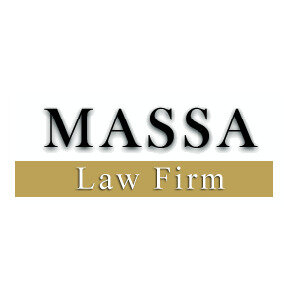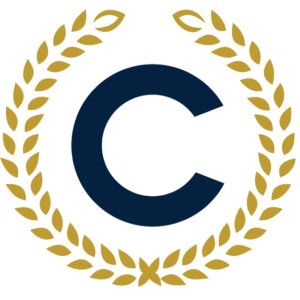Best Antitrust Lawyers in Bologna
Share your needs with us, get contacted by law firms.
Free. Takes 2 min.
List of the best lawyers in Bologna, Italy
About Antitrust Law in Bologna, Italy
Antitrust law in Italy, which also applies to Bologna in the Emilia-Romagna region, is designed to promote market competition and protect consumers, competitors, and the market itself from unfair business practices. These laws, known as "Diritto Antitrust" in Italian, includes European Union regulations and Italian national laws. In Italy, the main legislative texts are the "Legge 10 ottobre 1990, n. 287" (Antitrust Law) and EU regulations to which Italy is subject as an EU member state. The Italian Competition Authority ("Autorità Garante della Concorrenza e del Mercato" or AGCM) enforces these laws against anti-competitive practices, such as cartels, abuse of dominant position, and merges or acquisitions that may hinder competition.
Why You May Need a Lawyer
You may need an antitrust lawyer if you're involved in forming a business agreement, a merger, or an acquisition that could raise antitrust issues, whether you are based in Bologna or operating within its jurisdiction. Legal advice is also important if you suspect that competitors are engaging in unfair practices like price-fixing or market allocation, or if your business has been accused of such actions. A lawyer can help navigate the complexities of compliance, ensuring your business operations adhere to both Italian and EU antitrust regulations.
Local Laws Overview
Local laws in Bologna regarding antitrust are based on national Italian legislation, complemented by EU laws. Notable aspects include the prohibition of agreements that restrict competition, abuse of a dominant market position, and stringent control over mergers and acquisitions that could lead to a significant impediment of competition in the Italian market or the European Economic Area (EEA). Companies can also apply for leniency if they voluntarily come forward with information about a cartel in which they are participating. Penalties for antitrust violations can be severe, including hefty fines and, in some cases, imprisonment of the individuals involved.
Frequently Asked Questions
What institutions enforce Antitrust laws in Bologna?
The Italian Competition Authority (AGCM) is the primary agency that enforces antitrust laws in Bologna, alongside the European Commission for issues affecting trade between EU member states.
How can I file a complaint for an Antitrust violation?
Complaints can be filed to the AGCM directly. It's advisable to consult with a lawyer first to ensure that your claim is valid and properly documented.
Are there any exemptions to Antitrust Law?
There are certain exemptions provided for specific types of agreements that can be justified on grounds of efficiency gains, and if such agreements promote consumer welfare, under the EU's Treaty on the Functioning of the European Union (TFEU) rules.
What is the role of the European Union in Italian Antitrust law?
The EU provides a regulatory framework that must be followed by all member states, including Italy. Italian antitrust law is influenced significantly by European law and jurisprudence.
Can a company be investigated for Antitrust practices without a formal complaint?
Yes, the AGCM can initiate investigations on its own initiative based on suspicion or evidence of antitrust practices.
What are the consequences of non-compliance with Antitrust laws?
Non-compliance can result in sanctions such as fines, which can be as high as 10% of the worldwide turnover of a company, disgorgement of profits, and civil liabilities. In some cases, criminal charges may apply.
Is private enforcement possible in Bologna for Antitrust violations?
Yes, individuals and companies can bring private actions before the courts to seek compensation for damages caused by antitrust violations.
What types of mergers and acquisitions are regulated under Antitrust laws?
Antitrust laws regulate those mergers and acquisitions which may have an effect on competition in the market, especially those resulting in the creation or strengthening of a dominant position.
What is the definition of an abuse of a dominant position?
An abuse of a dominant position is characterized by behaviors that exploit or strengthen a company's dominant position in a way that is likely to affect trade and prevent or restrict competition.
How long do Antitrust investigations typically take in Italy?
Investigations can vary in length, often taking several months to several years, depending on the complexity of the case and the level of cooperation from the parties involved.
Additional Resources
For further assistance, AGCM's official website provides resources and guidance on antitrust laws. The European Commission's website also has extensive resources on EU competition laws. Business associations and local chambers of commerce in Bologna may offer seminars and workshops to help understand antitrust laws in practice.
Next Steps
If you need legal assistance with an antitrust matter in Bologna, Italy, the first step is to consult with a qualified lawyer who specializes in antitrust and competition law. They can advise you on your legal standing, possible actions you can take, and represent you in dealings with enforcement agencies and courts. Remember to compile any relevant documents and evidence related to your case before meeting with your lawyer to ensure an efficient consultation process.
Lawzana helps you find the best lawyers and law firms in Bologna through a curated and pre-screened list of qualified legal professionals. Our platform offers rankings and detailed profiles of attorneys and law firms, allowing you to compare based on practice areas, including Antitrust, experience, and client feedback.
Each profile includes a description of the firm's areas of practice, client reviews, team members and partners, year of establishment, spoken languages, office locations, contact information, social media presence, and any published articles or resources. Most firms on our platform speak English and are experienced in both local and international legal matters.
Get a quote from top-rated law firms in Bologna, Italy — quickly, securely, and without unnecessary hassle.
Disclaimer:
The information provided on this page is for general informational purposes only and does not constitute legal advice. While we strive to ensure the accuracy and relevance of the content, legal information may change over time, and interpretations of the law can vary. You should always consult with a qualified legal professional for advice specific to your situation.
We disclaim all liability for actions taken or not taken based on the content of this page. If you believe any information is incorrect or outdated, please contact us, and we will review and update it where appropriate.













